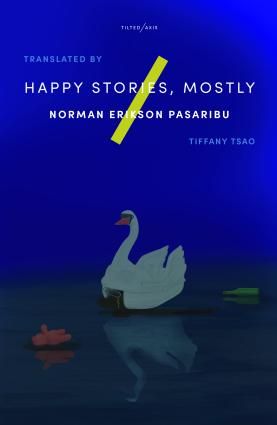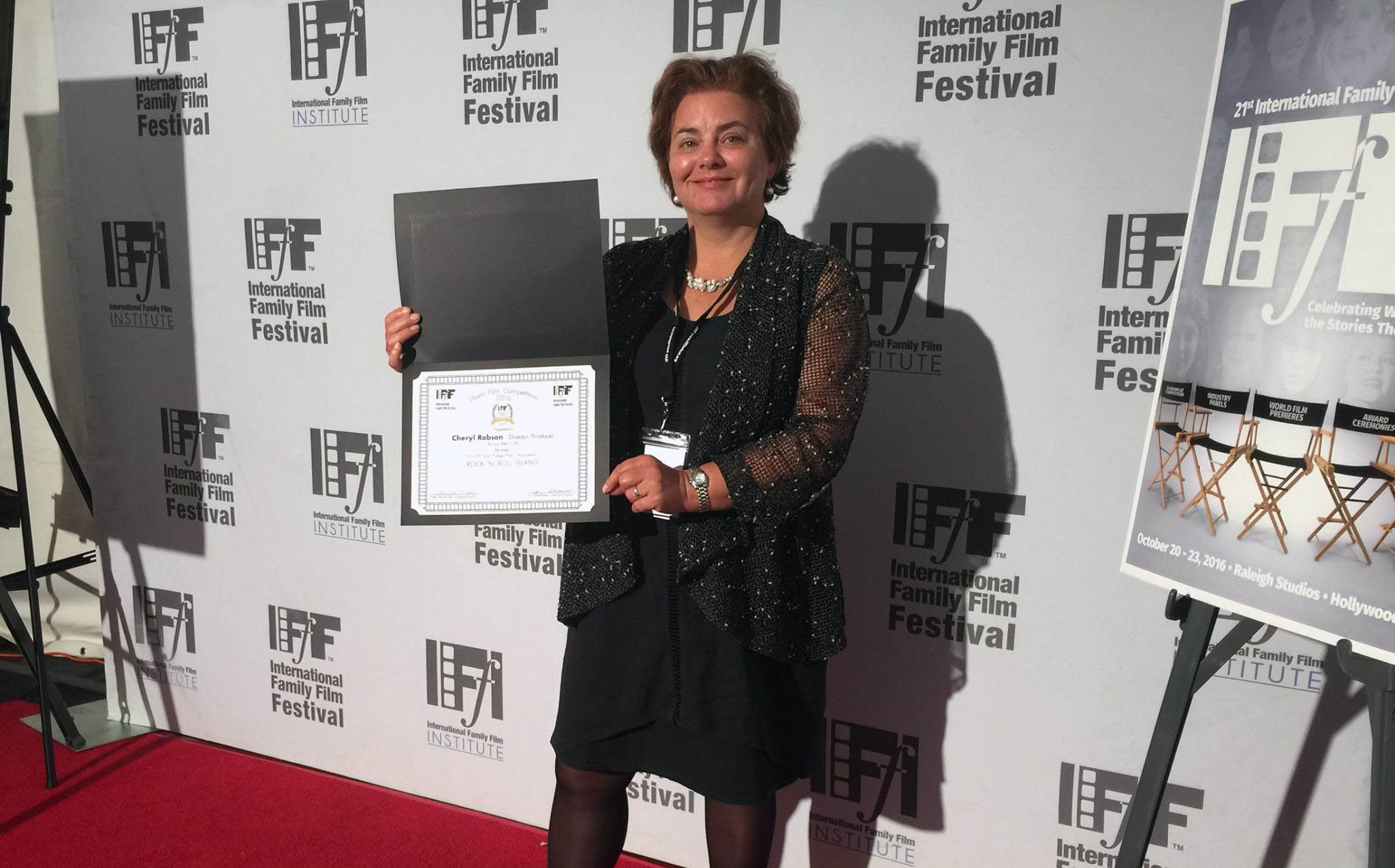Norman Erikson Pasaribu can light up a room. I remember first meeting him in my hometown of Leicesster where he was – at the time – on tour with the British Council, having been touted as a young Indonesian writer to watch. I was sad not to be able to attend the session he delivered at the States of Independence Festival hosted by De Montfort University’s Leicester Centre for Creative Writing, an annual celebration of independent presses, authors and thinkers. Norman arrived at my stall and we instantly clicked, chatting about writing, Indonesia and life. It was a simpler time then, pre-pandemic, and we had no idea then of how life would change so dramatically. Norman suggested we exchange works – a short play I’d written, which had just been staged the night before, for his debut poetry book, Sergius Seeks Bacchus. It was a remarkable work and now a favourite collection of mine. In the years that followed I kept an eye out for the short story collection Norman had mentioned that he was writing and which was due for publication. So, of course when I learnt that Norman’s debut short story collection, Happy Stories, Mostly had been longlisted for the International Man Booker Prize I was thrilled. And then it felt like the stars had aligned. As I walked down the corridors of the Clephan building for the first time in three years, I sensed that Norman was with us in spirit for his book. It was a gorgeous coincidence that the shortlist announcement of the Republic of Consciousness Prize would be taking place at the festival. Happy Stories, Mostly was on a very long longlist. I couldn’t hide my enthusiasm for the writer and his work. “I’m rooting for Norman.” I told the prize founder Neil Griffiths who gifted me a copy of the book.
And later, when I heard he’d won a fortnight later, I wrote to congratulate Norman, ask him if he’d answer a few questions. He wrote back almost immediately.
How do you feel about this win? (I imagine if we were in the same room, we would both be screaming)
I feel excited and happy. I saw the video of Martin Koerner announcing the winner, and he seemed so happy with the decision. I feel grateful when people can connect to these stories. A friend here said to me that I wrote this book with my own tears and blood. And, as Simone Weil said about generosity (attention is the rarest and purest form of generosity), giving this book a chance, a second-read, a close-read, is being generous to my tears and blood.
I know you had been working on this collection of short stories some time ago. Have you been surprised at how the book’s been received internationally?
I’m surprised! But not because I feel insecure about the book. I think Tiffany Tsao’s done a wonderful job in translating it. I feel surprised because some people don’t skip it. It’s so hard to make people read you when you are a writer in translation. Even more so if you come from a language that isn’t very popular in the UK publishing scene. Deliberate deformities in your writing will be seen as clumsy mistakes. Not to mention, I write queer narratives that don’t fit white liberals’ ideas of equality and liberation. People want illusions of happy gays, that things are “better now”; I want to be sad and angry because these are the feelings that are most logical to me, considering the lives of queer people in Indonesia, considering my own life. Isn’t it also violent to put to people who are socially and structurally abused a forceful expectation to be happy? And, after all, the foundation of this expectation is a heterocentricity that tries to think itself as progressive.
Tell me more about the collection and why you chose the short story form to tell these stories?
I don’t compartmentalize when I write. Even when I wrote these stories, I was thinking about writing poems. When I wrote my poems, I was thinking about writing stories.
Do you think more needs to be done to champion literature in translation?
I think so. People need to stop blaming translators (“lost in translation”, etc) and authors when it is their reading palette that is limited and/or Eurocentric.

Inspired by Simone Weil’s concept of ‘decreation’ and drawing on Batak and Christian cultural elements, in Happy Stories, Mostly Pasaribu puts queer characters in situations and plots conventionally filled by hetero characters.
In one story, a staff member is introduced to their new workplace – a department of Heaven devoted to archiving unanswered prayers. In another, a woman’s attempt to vacation in Vietnam after her gay son commits suicide turns into a nightmarish failed escape. And in a speculative-historical third, a young man finds himself haunted by the tale of a giant living in colonial-era Sumatra.
A blend of science fiction, absurdism and alternative-historical realism, Happy Stories, Mostly is a powerful puff of fresh air, aimed at destabilising the heteronormative world and exposing its underlying absences.
Norman Erikson Pasaribu is a poet and writer. His first collection of short stories in Indonesian was shortlisted for the 2014 Khatulistiwa Literary Award for Prose. His debut poetry collection Sergius Mencari Bacchus, won first prize in the 2015 Jakarta Arts Council Poetry Competition. His poems have appeared in Asymptote, Modern Poetry in Translation, Asia Literary Review and Cordite Poetry Review. His short story collection Happy Stories, Mostly(translated by Tiffany Tsao) was longlisted for the 2022 International Booker Prize. He is based in Jakarta.

